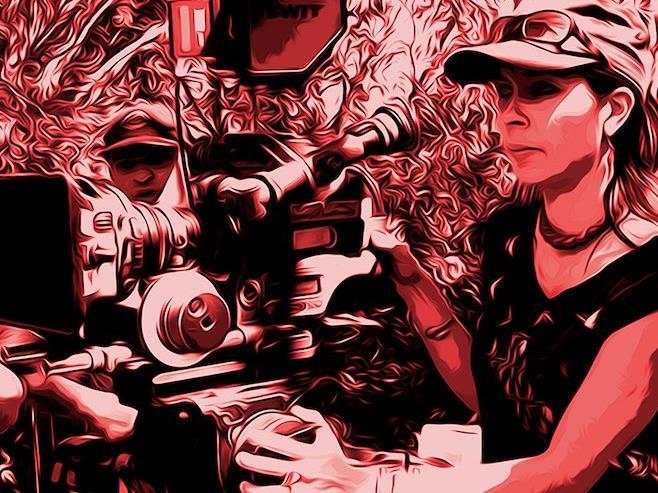With the launch of its new 2017 program of courses, the Australian Film Television and Radio School creates transformative experiences for industry members, while also opening the door to people from similar creative areas.
The courses have been rethought and reimagined to the point where they create a coherent ladder of opportunity.
‘We are building our courses by asking where we are in the journey of the people we teach,’ says Martin Brown, the AFTRS Director of Award Courses. ‘Are we dealing with the beginning of people’s careers? Or early to mid-career? Or at the Masters level?
‘Our program offers opportunities to advance your career and your business, and may encourage you to come back again in a few year’s time.’
The demand from potential students is rising steadily, as creative people realise the opportunities in the medium, and the extraordinary pace of change. ‘We had record numbers on Open Day with over a thousand people coming through the door. And more than a thousand watched online on Facebook, where we are now streaming lots of our events,’ says Brown. ‘The graduate information night about post grad offerings was also extremely well attended.’
Brown identifies two core approaches in the suite of courses. ‘If someone is very much looking at an industry skill we offer Diplomas and Advanced Diplomas, which offer hard core learning about specific abilities. Then we have our Masters courses which are very much about the authorial voice, they are reflective and help people to make a contribution to the Australian industry, to our audiences and the world audience beyond that.’
From its research, AFTRS understands there are key turning points in the development of screen creatives, where they need to develop new and deeper skills to move onto the next level. They also need to learn in order to adapt to new technology, and to manage the changing commercial environment.
At any of these touch points between AFTRS and students, it is vital to fit courses into the real financial lives of students.
The BA: Screen Production is full time for three years. The school knows that 80% of the students are also working part time to support themselves, so the course is organised to allow students at least a day a week off campus when they can do paid work.
The Diploma and Advanced Diploma courses sit under the BA in academic terms ‘but we think of them as specialised skills based courses’, says Brown.
‘These courses are part time, and the equivalent of a day a week, sometimes on two evenings or on a full Saturday. It is a significant commitment if you are working full time to come here every Saturday for two semesters, plus additional homework. But people do get a huge amount out of it.’
The courses fit tightly into the industry, across the traditional crafts, each of which has its own structure of learning and achievement. But there are also programs which reflect how closely AFTRS is involved in industry change. The Diploma in Social Media Video, for instance, acknowledges that production in this space is distinctively different, with its own planning and ways of attracting an audience. The School is also offering a brand new Diploma in Grading, which reflects the way in which editors are reaching out to the domain traditionally occupied by very high end colour graders.
At the postgraduate level there are eight graduate certificates, which also run for a day a week or two nights. Here, says Brown, ‘One unit in each course is taken with all the people from the other graduate certificates. Even though you are at AFTRS to study a particular specialism, you get to work in a collaborative environment. All the exit surveys people say that people prize this the most. You not only get to grips with your chosen discipline, but you also learn to work collaboratively.’
The flagship course in radio is a Graduate Diploma in Radio course, which is a full time year-long course. Despite its rigours, it has been run in some form for many years and is still highly regarded.
The current Master of Screen Arts course will be completed in 2017, to be replaced by the new Master of Arts Screen, which is a full time course running for two years. ‘It is a significant commitment,’ says Brown, ‘really about cultural voice and going deeper into who you are as a creator and what you have to say. For half the time, students work in their craft discipline, and in the other half they work collaboratively with the whole group. it is a chance to experience co-operation deeply, while you develop excellence in your own craft.’ It will cover 11 disciplines, with no more than six students in each class, and students will both work on other productions and make their own film, so it is rich with possibilities.
AFTRS MA Screen: Business and Leadership course continues in 2017. It has developed a formidable reputation over the last few years. It has attracted key industry people like producer Sue Maslin, distributor John L. Simpson and Madman CEO Paul Wiegard, all of whom are trying to confront crucial industry problems by reinventing their own practice. Sustaining and developing enterprises is central to the whole adventure.
You can find out specific details about AFTRS 2017 offering here:
- MA Screen(11 disciplines) Applications close 18 November.
- MA Screen: Business & Leadership Applications close 18 November.
- Graduate Certificates Applications close 18 November.
- BA Screen Production Applications close 30 November.
- Diplomas and Advanced Diplomas Applications close 15 January.





